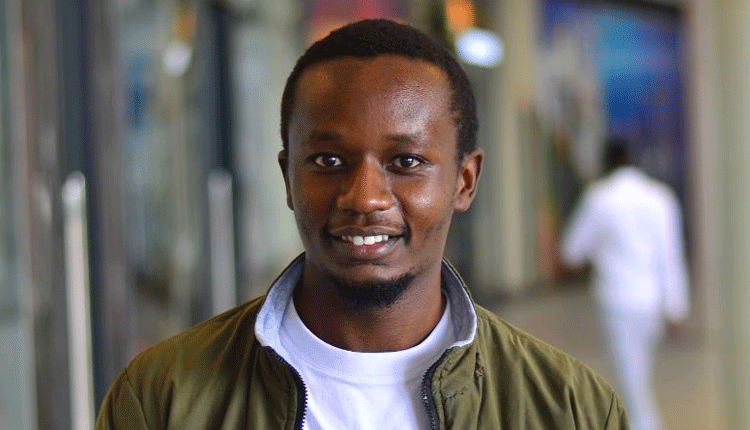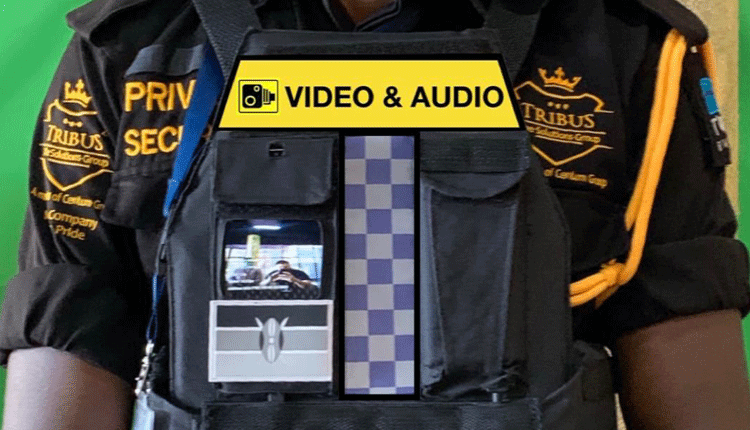Inventor Douglas Okonu creates Kenya’s first automated body camera
By Njeri Maina, October 13, 2021Douglas Okonu interest in everything tech and security led to the gadget, now on its sixth iteration, that can be used in various scenarios.
Douglas Okonu journey in tech culminated in the creation of the first fully automated Kenyan-made body camera.
The idea came naturally months ago when Douglas wondered why despite having made so many technological advancements, there was no such Kenyan-made security apparatus.
“I was part of the team that built Ajiri, an intuitive human resource software.
I have also worked in cyber security for two years. I currently work with Tribust TSG Ltd, a security firm.
My work involves secure web development, firewall installation, configuration and maintenance, penetration tests and innovations.
I have always been interested in both physical and cyber security and finding ways to enhance it,” Douglas explains.
As someone interested in automated gadgets and all things that are in the intersection of security and technology, Douglas, in his admission letter for high school, stated that he wanted to be an inventor.
Once in school, he took part in science congress throughout high school as he saw this as a chance to flex his creative technology muscle.
That he would go till the national level in his last year in high school in 2013 with a remote-controlled lawn mower proved that he was on the right path.
He would later on fully automate the door to their home in Mombasa. The natural next step was to enrol in Multimedia University of Kenya for a software engineering degree.
Highlights and challenges
For three months, Douglas and his team worked on streamlining the idea, designing, writing code, and sourcing for materials to make the first prototype.

They made body camera from fabric, electronic circuits, hardened plastics instead of bulletproof plates as one would need a license to handle them.
Making the body camera was not easy as they had to source for hardware from outside the country as they needed something modular that they could alter with each subsequent prototype.
Luckily, fabric was easy to source for. Circuit work for the body camera was also a challenge as it is an enclosure.
The hard work would pay off as the team was able to do a successful test run at Two Rivers in August.
They were able to see the body camera at work, transmitting live feed to the central security system as the guards checked cars and interacted with customers.
This was a definitive highlight for everyone involved as it justified the endless hours of hard work, Douglas says.
The body camera transmits data to a central system whether there is internet connectivity or none.
This makes it perfect for use in almost any geographical location. It has 64GB internal storage, which means that it can manually back up any data.
The storage works on the first in, last out algorithm as old data is discarded as new is stored once the limit is reached.
The body camera is automated. So long as it is fully charged, it transmits and streams data untill the battery goes off.
The team is working on prototype six that will include a physical override button.
While many think that a body camera can only be used by the police force, it has different uses and can be customised for different settings.
Customisable gadget
“With the body camera we can gather intelligence not just in the security field but in business settings such as the customer care field.
It can be used to increase efficiency in combat training as it measures pulse rate and oxygen for the person wearing it if need be.
This is a functionality that can be easily translated into the medical field, especially in highly contagious setups.
The patient can wear the body camera and oximeter and pulse rate metre readings can be transmitted live to a central health system thereby safeguarding the health of the health professionals.
The good thing about this body camera is that we can customise it to solve specific problems.
We are currently on the sixth prototype and cannot wait to see where this takes us.
We are working on a more rugged and hardened model. We are also working on making it smaller and more compact,” Douglas says.
To those who would like to offer tech solutions but don’t know where to start, Douglas’ advice is for them to stay curious.
They should look at how things work both in and outside the country and look for gaps where they can offer solutions.
With copious amounts of research and creativity, he believes that Kenya can be the next tech hub.
